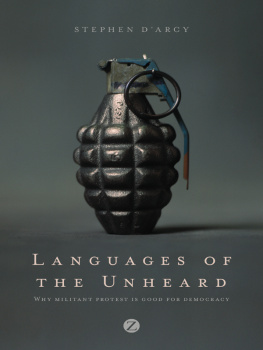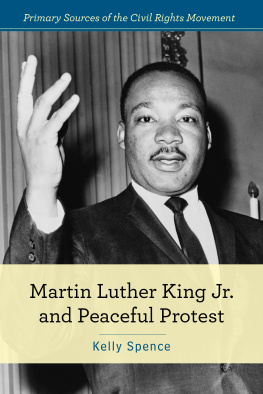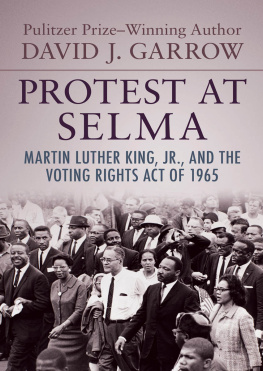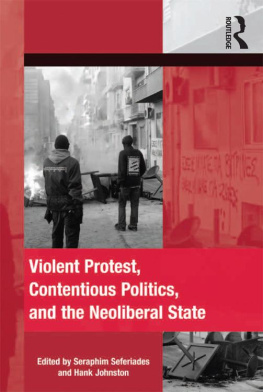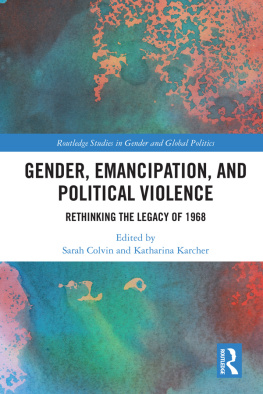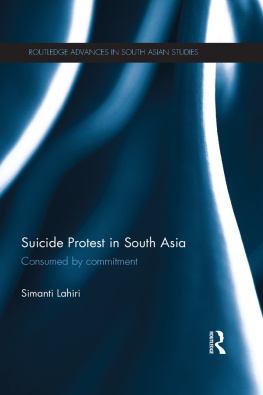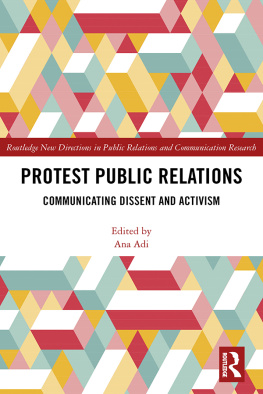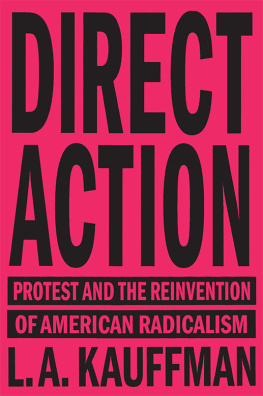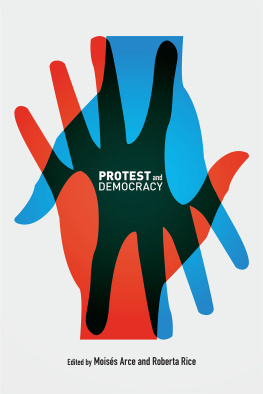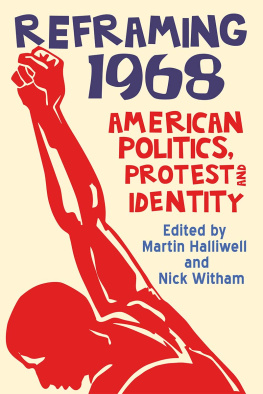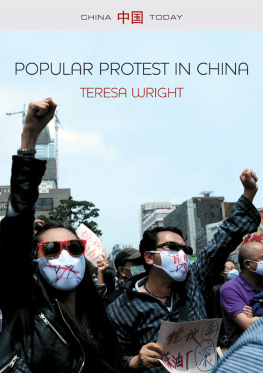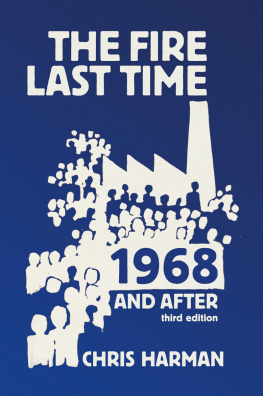
About the Author
Stephen DArcy is an associate professor in the Department of Philosophy at Huron University College, at Western University, in London, Ontario. He teaches courses in moral and political philosophy, and publishes in the areas of democratic theory and practical ethics. He is a long-time social activist and protest organizer.
More Praise for Languages of the Unheard
Through exploring the concept of militancy from all angles and depths, DArcy shows that the more society tries to stifle even the discussion of militancy, the more loudly and forcefully those without a voice will be compelled to speak. In the end, DArcy resolves this paradox by pointing out that the voice of militancy will only be silenced when we create a true democracy where everyone has a voice. (Ann Hansen, author of Direct Action: Memoirs of an Urban Guerrilla)
Contrary to those liberals and social democrats who argue that militant activism is antidemocratic, Stephen DArcy makes a sustained argument coming from within democratic theory that forms of militant disruptive protest can instead be seen as crucial to defending and expanding participatory forms of democracy. (Gary Kinsman, author of The Regulation of Desire)
I highly recommend this book to all people, young and old, and especially to Indigenous youth who are at the forefront of this generation of activists. It is important to know when and where protests, blockades, or militant actions have been successful. And why! (Jeannette Corbiere Lavell, founding and honourary board member, Ontario Native Womens Association)
Languages of the Unheard
Why Militant Protest is Good for Democracy
Stephen DArcy

Zed Books
LONDON | NEW YORK
Languages of the Unheard: Why Militant Protest is Good for Democracy was first published in 2014 by Zed Books Ltd, 7 Cynthia Street, London N1 9JF, UK and Room 400, 175 Fifth Avenue, New York, NY 10010, USA
This ebook edition was first published in 2014.
www.zedbooks.co.uk
Copyright Stephen DArcy 2013
The right of Stephen DArcy to be identified as the author of this work has been asserted by him in accordance with the Copyright, Designs and Patents Act, 1988
Typeset in Utopia by Steve Izma
Index: Martin Boyne
Cover designed by roguefour.co.uk
All rights reserved. No part of this publication may be reproduced, stored in a retrieval system or transmitted in any form or by any means, electronic, mechanical, photocopying or otherwise, without the prior permission of Zed Books Ltd.
A catalogue record for this book is available from the British Library
Library of Congress Cataloging in Publication Data available
ISBN 978 1 78360 165 3
For my parents
Contents
Introduction: Militancy as a Civic Virtue
W HAT WE MUST SEE, Martin Luther King once insisted, is that a riot is the language of the unheard. Recourse to rioting, he suggested, is seldom a marker of irrationality or mob psychology. More often, it is an attempt by marginalized people to find their voice, to gain a hearing, to assert their refusal to be silenced or ignored.
Kings remark was as controversial as it was illuminating, yet he stopped short of depicting riots as defensible. He insisted only that they were understandable a frustrated response to persistent injustice that made some sense in the face of long experience with intransigent elites and unresponsive systems of power. But his wording hints at the possibility of a stronger view: that these outbursts of rebellion might sometimes be defensible, even admirable, because they make it impossible to ignore the grievances of the exploited and the oppressed.
What if we, today, were to adopt this interpretation of riots? How might this idea transform our understanding and evaluation of these spontaneous revolts? And could this understanding be extended to other forms of confrontational protest and rebellion: to general strikes, sit-ins, road blockades and occupations, to the monkeywrenching saboteur, the black bloc street fighter, or even the armed insurgent? Could these forms of militancy be regarded, in the same way, as languages of the unheard?
In pursuing these questions, there can be no better guide than King This book borrows freely from the terminology that he uses when discussing confrontational protest. Key themes, especially in the opening chapters, emerge directly from engagement with his work: an account of the militants vocation as giving a voice to the voiceless; a definition of militancy as grievance-motivated, adversarial, and confrontational collective action; a typology of defiance, disruption, destruction, and armed force as four distinct styles of militancy; and finally, an insistence on the importance of distinguishing although I diverge from his way of distinguishing sound from unsound militancy.
But not everyone will join me in endorsing Kings judgment that militant organization is indispensible to our struggle Their weak attachment to the importance of social justice and public autonomy is reason enough for them to wring their hands when they see bold action against racism or poverty, colonialism or sexism. Other critics of militancy, however, are sincerely committed to the resolution of urgent grievances. Their concerns about using confrontational means to this end, therefore, cry out for a serious response. These are the many social justice advocates whose liberal attachments to notions of equality and democracy are genuine, and whose numbers swell the ranks of many popular demonstrations and social movement organizations.
Their concern which I call the liberal objection is that by resorting to forceful pressure, rather than consensus-building and reason-guided public discussion, the militant protester in effect reverts to force, rather than dialogue, and in this way breaks with the democratic ideal. Can militants offer a principled reply, or do they have to follow those advocates of militancy (notably, anarchist writer Peter Gelderloos) who disavow the claim to be on the side of democracy, thus seemingly conceding the liberals main point?
I believe that a principled and convincing rebuttal to the liberal objection is available to militant protesters. And this is what I offer in this book: a normative standard, by appeal to which it can be shown when and on what basis militancy is a support, not a danger, to democratic norms.
In the response that I propose, I break with King in one crucial respect. Unlike King, I am unconvinced by one of the most popular standards of legitimacy for militant resistance, namely, the fixation on the difference between violence and nonviolence. Time and again, one hears that protesters went too far by resorting to violence, or that the people who indulge in violence are not really part of movements for social and environmental justice or for political and economic democracy. The violent protesters are said to be part of the problem, not the solution. The standard that I propose draws the line between justifiable and unjustifiable militancy at a different point: the crucial contrast is between democratic and undemocratic, not between violent and nonviolent.
The distinction between violence and nonviolence cannot be the basis for distinguishing justifiable from unjustifiable protest, because the very idea of violence always already presupposes some degree of unjustifiability. If I push a man to the ground to prevent him from stabbing a nearby child, I am using physical force. But am I committing an act of violence? Most of us would be reluctant to use the word in this way. In contrast, suppose that I push the same man to the ground in order to block him from accessing a building that I am picketing, in the context of a general strike. Here, many would be only too quick to reach for the word violent; others, still, would hesitate. Consider a third case: What if I push that same man to the ground to express my contempt for his religion? In this case, perhaps everyone would agree that this is a violent act. And yet, in all three cases I perform an act of the same type, namely, pushing a man to the ground. Why do we not describe all of these actions, or none of them, as violent? The answer is clear: we are reluctant to call any act violent if we regard it as admirable and morally sound. This is one reason why one hears so little talk of violent self-defence. Self-defence is considered morally acceptable, so we resist describing it as violent.
Next page
